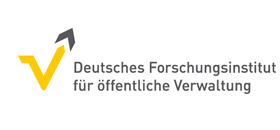The 10 most recently published documents
Ausgabe 19 – 18. Januar 2024
(2024)
Inhaltsübersicht:
Prüfungsordnung für den Masterstudiengang Master of Laws Staat und Verwaltung in Europa der Deutschen Universität für Verwaltungswissenschaften Speyer (MasterO LL.M.)
Prüfungsordnung für den Masterstudiengang Master of Arts Public Administration der Deutschen Universität für Verwaltungswissenschaften Speyer (MasterO M.A. Public Administration)
Erste Ordnung zur Änderung der Satzung der Hörerschaft der Deutschen Universität für Verwaltungswissenschaften Speyer
Erste Ordnung zur Änderung der Beitragsordnung der Hörerschaft der Deutschen Universität für Verwaltungswissenschaften Speyer
Ausgabe 17 – 25. Juli 2023
(2023)
Ausgabe 16 – 18. April 2023
(2023)
Ausgabe 13 – 17. April 2020
(2020)
Inhaltsübersicht:
4. Ordnung zur Änderung der Prüfungsordnung für den Masterstudiengang Master of Public Administration Wissenschaftsmanagement der Deutschen Universität für Verwaltungs-wissenschaften Speyer
4. Ordnung zur Änderung der Studien- und Prüfungsordnung für das Verwaltungswissen-schaftliche Aufbaustudium an der Deutschen Hochschule für Verwaltungswissenschaften Speyer

